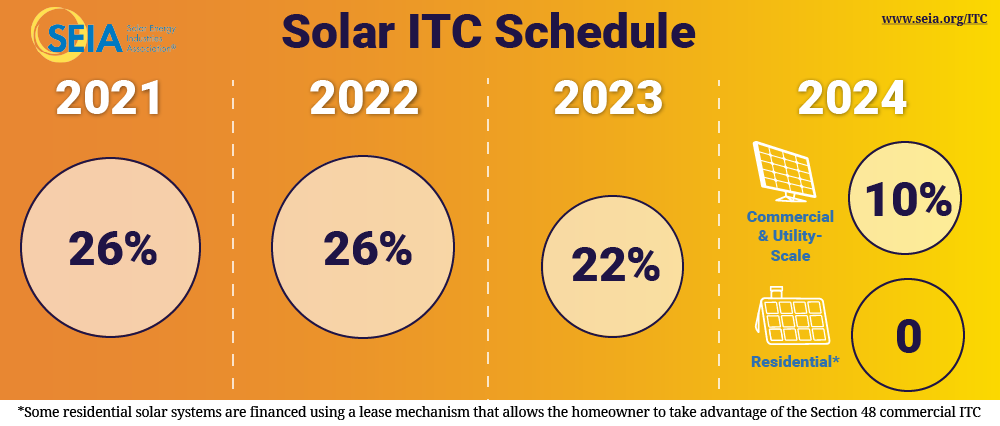Now that the dust appears to have settled on the 2020 presidential election, what does the future hold for clean energy policy and solar investment tax credits? While control of the U.S. Senate won’t be known until two runoff elections are held in Georgia in early January, President-elect Biden has signaled some early actions he’ll take on climate change once he enters the White House on Jan. 20:
- On Day 1, President-elect Biden has pledged to have the U.S. rejoin the Paris climate accord and says he’ll convene a “climate world summit” to press for faster carbon emission reductions by industrialized nations.
- Biden will also reverse an early Trump administration order instructing all federal agencies to dismantle their climate change policies. He also plans to reinstate Obama-era federal energy efficiency standards for buildings and autos that were rolled back during the Trump administration.
- Biden wants to clamp down on methane emissions from fracking and other domestic oil and gas production activities. He also plans to restore limits on offshore drilling and protect federal lands that the Trump administration had opened up for fossil energy development.
- Looking forward, Biden wants to view climate and energy policy through more of an environmental justice lens. He is exploring the creation of a special advisory board to coordinate federal climate programs and monitor the response of vulnerable, low-income communities. Biden also plans to sign an executive order requiring public companies to disclose their greenhouse gas emissions and climate-related risks in their securities filings.

First and foremost, President-elect Biden wants to confront the coronavirus pandemic and provide economic relief for struggling communities. Any stimulus package is sure to include expanded R&D funding for federal clean energy programs, a nationwide build-out of EV charging stations, and more support of state programs to accelerate renewable energy production. This package is also where Biden may call for an extension of residential solar tax credits due to expire next year.
When Congress last took up this proposal in the spring of 2020, it fell victim to election year politics. Republicans blocked its consideration on grounds that a five-year solar tax credit extension would do more to promote the Green New Deal than provide relief from the pandemic.
While it remains to be seen whether Republicans will double-down on this opposing stance when Congress reconvenes, it’s worth recalling that solar and wind tax credits have enjoyed broad bipartisan support historically. When Congress first passed solar tax credits in 2005, Republicans controlled the U.S. Senate, and President George W. Bush signed the bill into law. Ten years later, House Republicans crafted a deal extending the tax credits through 2021, in exchange for lifting a 40-year old ban on U.S. crude oil exports.
Opinion polls continue to find overwhelming public support for another extension of renewable energy tax credits. A nationwide poll conducted last December found, for example, that 95% of Democrats, 86% of independents, and 83% of Republicans, favored such an extension.
Solar power defies partisan politics because it garners such broad, grass-roots support. It’s now recognized as an affordable energy source that provides sustainable jobs in our communities. At the same time, it’s being counted on to electrify our homes, modernize the utility grid, and bring our nation closer to energy independence. And, most of all, solar is emerging as our prime weapon against global warming and in the quest for a clean energy future.



